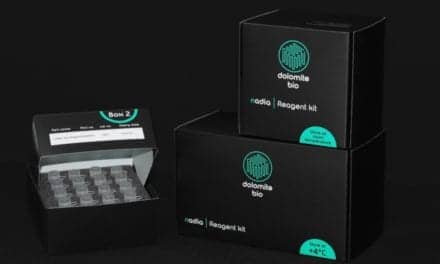Genomic Health Inc, Redwood City, Calif, has announced results of the trial assigning individualized options for treatment (TailoRx), the largest-ever breast cancer treatment trial. The study successfully defined the benefit of chemotherapy among early-stage breast cancer patients with Oncotype DX breast cancer recurrence scores of 11 to 25.
According to the study results, the Oncotype DX breast cancer recurrence score identified 70% of early-stage breast cancer patients who receive no benefit from chemotherapy and can be effectively treated with endocrine therapy alone. Additionally, the trial established that chemotherapy may provide life-saving benefit to 30% of patients. The TailoRx study was sponsored by the National Cancer Institute (NCI) and led by the ECOG-ACRIN cancer research group.
The TailoRx results were presented during a plenary session at the 2018 annual meeting of the American Society of Clinical Oncology (ASCO).1
“TailoRx provides the most definitive answer to how to treat women with Oncotype DX recurrence scores of 11 to 25 as well as 0 to 10,” says Joseph A. Sparano, MD, lead author, associate director for clinical research at the Albert Einstein Cancer Center and Montefiore Health System, and vice chair of ECOG-ACRIN. “The results provide an unprecedented level of precision and highest level of evidence supporting the use of this test to guide adjuvant chemotherapy use in this population, which accounts for about one half of all breast cancers.”
Approximately 50% of all breast cancer patients diagnosed worldwide each year have hormone-receptor positive, HER2-negative, node-negative cancer. The TailoRx study definitively established that chemotherapy can be spared in about 70% of such patients, including all women aged 50 years or older with breast cancer recurrence scores of 0 to 25, and all women aged 50 or younger with breast cancer recurrence scores of 0 to 15.
Importantly, 30% of early-stage breast cancer patients will derive benefit from chemotherapy. This group includes women of any age with breast cancer recurrence scores of 26 to 100; and women aged younger than 50 years, where breast cancer recurrence scores of 16 to 20 correlated with a modest benefit from chemotherapy (2%), which gradually increased as scores rose to 25 or higher. This finding reveals a new level of precision in assessing chemotherapy benefit for younger patients.
“TailoRx, as well as the completed NSABP B-20 Oncotype DX study, are unparalleled in their design to define who does, and who does not, benefit from chemotherapy,” says Steven Shak, MD, chief scientific officer and chief medical officer at Genomic Health. “The long-term TailoRx results provide the highest level of evidence for Oncotype DX, allowing physicians to now tell every patient, with precision, what their magnitude of chemotherapy benefit will be.”
The TailoRx trial was independently designed and conducted by ECOG-ACRIN under NCI sponsorship. All major cancer clinical research groups with trial sites in Australia, Canada, Ireland, New Zealand, Peru, and the United States participated in the study. Investigators used the Oncotype DX breast cancer recurrence score on every patient to assign treatment or randomization to determine whether chemotherapy would be beneficial or not. The research groups included the Alliance for Clinical Trials in Oncology, Canadian Trials Group, ECOG-ACRIN cancer research group, NRG Oncology, and SWOG.
In total, 10,273 patients were enrolled in TailoRx between 2006 and 2010. Participants with breast cancer recurrence scores from 0 to 10 received endocrine therapy alone, based on the prior results from the NSABP B-20 study, which showed no opportunity for chemotherapy benefit for these patients. Participants with breast cancer recurrence scores from 26 to 100 received chemotherapy plus endocrine therapy, based on the prior results from the NSABP B-20 study, which showed an absolute benefit of chemotherapy greater than 20%.
The primary study group in TailoRx comprised 6,711 patients with Oncotype DX breast cancer recurrence scores of 11 to 25. To more precisely define the effect of chemotherapy for women considered at intermediate risk for recurrence, these participants were randomized to receive endocrine therapy with or without chemotherapy. Investigators followed these randomized patients, comprising two-thirds of all patients enrolled in TailoRx, for an average of 9 years.
Genomic Health provided funding for the collection of follow-up information from the treating sites but not for the planning and execution of the study.
To learn more, visit Genomic Health.
Reference
1. Sparano JA, Gray RJ, Wood WC, et al. TailoRx: phase III trial of chemoendocrine therapy versus endocrine therapy alone in hormone receptor-positive, HER2-negative, node-negative breast cancer and an intermediate prognosis 21-gene recurrence score [abstract no. LBA1, online]. Paper presented at the annual meeting of the American Society of Clinical Oncology, Chicago, June 3, 2018. Available at: https://meetinglibrary.asco.org/record/161490/abstract. Accessed July 25, 2018.







